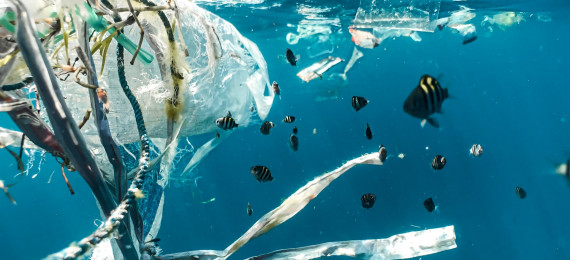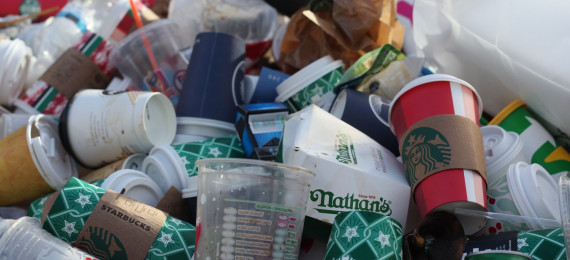Search Lesson Plans
Textile Waste: The Impact of What We Wear
The creation and disposal of textiles can create a lot of waste. To introduce the issue to the classroom and get students thinking about ways they can make a change, watch the video and explore the activities in the education guide linked below.
Ocean Plastics: The Impact of Ocean Bound Waste
Plastics in the ocean create big problems for our environment. To introduce the issue of ocean plastics to the classroom and get students thinking about ways they can make a change, watch the video and explore the activities in the education guide linked below.
Climate Change: The Impact of Landfills
Climate change is a global problem, but everyone can be part of the solution. To help your classroom understand the link between climate change and landfills and get students thinking about ways they can make a change, watch the video and explore the activities in the education guide linked below.
Taking action on food waste at home and in school
Students brainstorm creative ways to waste less food both at school and at home, and then work together on a Food Waste Awareness Campaign for their peers.
Food for thought: finding creative solutions for food waste
Students interview a “top chef” in their life about strategies for reducing food waste in the kitchen. They also create a wasteless menu for themselves.
Why is food lost or wasted on farms?
Students are introduced to the problem of food loss and food waste. They complete research on a specific crop and the potential issues that can occur during the seed to table process. Their findings are presented as a creative project.
Trading Textiles
In this lesson, students will choose a piece of clothing to trace back to its country of origin, hold a clothing swap and Eco-fashion show. Learners use infographics to demonstrate their understanding of how to divert textile waste from landfills.
Solid Waste Surveys
In this engaging math lesson, students learn about percentages through recycling activities. Students create an online survey to assess their classmates’ recycling habits and analyze the data.
Single Use Plastic: From Producer to "Pro Reducer"
Students explore "silly" and "smart" ways to package our everyday items. They will learn about how the Mi'kmaq traditionally transported and stored various foods and everyday items. Students explore the concept of a plastic-free grocery store; think about alternatives to single-use plastic; and make a pledge to refuse plastic.
The Reduce through Upcycling Challenge
Students are challenged to creatively repurpose or “upcycle” common household items and pitch their innovations to their class. Students share their pitch with the rest of the school to promote learning about reducing consumption and repurposing items as an alternative to purchasing new items.
Recycling Film Festival
Students will choose a recycling video from the Internet and host a Recycling Film Festival.
A Recipe for Electricity: How Natural Resources can Power your House
Through engaging hands-on activities, students will learn how electricity is made from renewable and non-renewable sources. Students will draw, act, create models, write poems, or write stories to explain how electricity can be generated from organic material.
Plastics in the Schoolyard
In this hands-on lesson, students learn about proper waste sorting and put their knowledge to work by doing a garbage clean up around the school. Students use their detective skills to determine that the majority of litter is made of plastic.
Garbage Collectors
Students learn about the amount of waste generated and recycled in Canada. After a week of collecting their classroom waste, students sort it properly to determine what per cent of the waste is recyclable. Note: This activity takes one week to complete.
Trash or Treasure: What can we learn from the past?
Learners will apply critical thinking to compare modern life to that of the past. Students learn about artifacts of Mi’kmaw ancestors uncovered in Nova Scotia. Students will participate in a hands-on activity to predict what future generations may be able to discover about our daily life based on the waste materials we leave behind.


